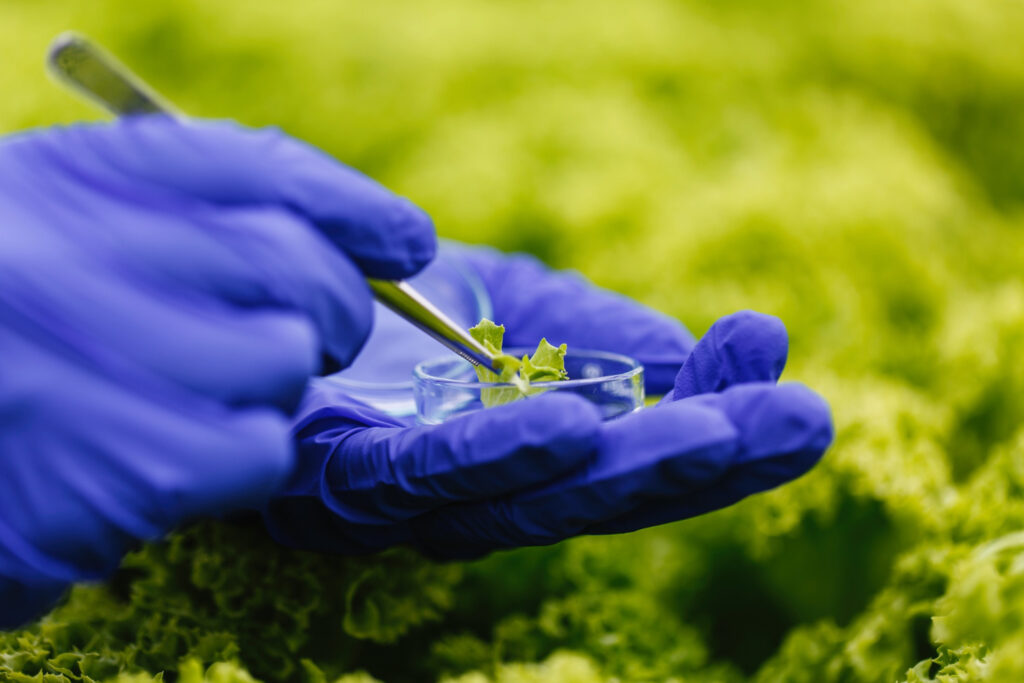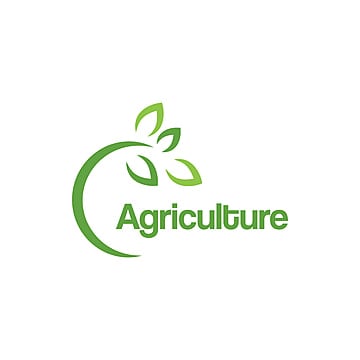Agricultural Biotechnology Description
Using cutting-edge research, agricultural biotechnology combines biology and technology to increase agricultural output. It focuses on enhancing desired qualities in crops, livestock, and microbes by changing their genetic makeup. For instance, crops that have undergone genetic modification (GM) are designed to withstand herbicides, be resistant to pests, and yield more. Furthermore, scientists can enhance crops’ nutritional value by reinforcing rice with vital vitamins thanks to biotechnology. Furthermore, developments in this area contribute to a decrease in the need for chemical fertilizers and pesticides, increasing the sustainability of farming.
Moving on to cattle, biotechnology plays an equally important role in improving animal breeding. The production of more food is facilitated by genetic modification, which produces healthier animals with faster growth rates and greater resistance to disease. Moreover, the development of biofuels—which assist meet energy needs by utilizing crops and agricultural waste to make renewable fuels—is greatly aided by agricultural biotechnology. Biotech crops are also crucial in the fight against global issues like climate change since they can be engineered to flourish in arid regions and other challenging conditions.

Furthermore, by lessening farming’s environmental impact, this profession encourages environmentally beneficial practices. Farmers may grow more food on less area while maintaining soil quality and biodiversity by using biotechnological techniques. Consequently, agricultural biotechnology helps to ensure a balance between agricultural productivity and environmental conservation, while simultaneously meeting the expanding worldwide need for food. This leads to sustainable development. The potential of agricultural biotechnology to address pressing concerns related to food security is becoming increasingly relevant as research advances.
FAQs
1. What is Agricultural Biotechnology?
Agricultural Biotechnology involves the use of scientific techniques, such as genetic engineering and molecular markers, to modify plants, animals, and microorganisms. For example, crops can be enhanced for better resistance to pests or improved nutritional value.
2. Is Agricultural Biotechnology safe for the environment?
On the one hand, biotechnology can reduce the use of harmful pesticides, benefiting the environment. However, on the other hand, concerns about biodiversity loss and the long-term effects of genetically modified organisms (GMOs) exist, which require careful study.
3. What are GMOs and how are they related to Agricultural Biotechnology?
GMOs, or genetically modified organisms, are plants, animals, or microorganisms that have been altered using biotechnology. For instance, crops like Bt cotton and Golden Rice are GMOs designed for better pest resistance and enhanced nutrition, respectively.
4. What role does Agricultural Biotechnology play in food security?
In particular, biotechnology can help increase food production, which is crucial for feeding the growing global population. Furthermore, it can improve the nutritional content of crops, contributing to better public health.
5. What are the ethical concerns surrounding Agricultural Biotechnology?
While many people support the advancements brought by biotechnology, others express concerns over the ethical implications, particularly regarding GMOs. For instance, issues related to food labeling, patenting of life forms, and the potential long-term environmental impacts are debated.
6. What is the future of Agricultural Biotechnology?
In conclusion, the future of Agricultural Biotechnology looks promising, with advancements in gene editing technologies like CRISPR offering new possibilities. However, careful regulation and public awareness are essential to ensure its benefits are maximized without overlooking potential risks.
అగ్రికల్చరల్ బయోటెక్నాలజీ అనేది వ్యవసాయంలో సమర్థవంతమైన పద్ధతులు మరియు సాంకేతికతలను ఉపయోగించి పంటల ఉత్పత్తి మరియు నాణ్యతను మెరుగుపరచడంపై దృష్టి పెట్టింది. మొదటగా, ఇది వివిధ జాతుల జీవన ప్రదేశాలను మరియు వాటి జీవనశైలులను అన్వేషించి, ఆ జాతులలో ఉన్న ప్రత్యేకమైన లక్షణాలను పరిగణలోకి తీసుకుంటుంది. తర్వాత, ఈ సాంకేతికతను ఉపయోగించి, పంటలను మెరుగుపరచడానికి, పంటల రోగాలను నివారించడానికి, మరియు పంటల దిగుబడులను పెంచడానికి సహాయపడుతుంది. ఈ విధంగా, మానవులు మరియు పర్యావరణం మధ్య సమతుల్యాన్ని పరిరక్షించడానికి సహాయపడుతోంది. పైగా, అగ్రికల్చరల్ బయోటెక్నాలజీ ఆహార భద్రతను పెంపొందించడానికి, పర్యావరణానికి హాని చేయకుండా వ్యవసాయ ఉత్పత్తిని పెంచడానికి కొత్త మార్గాలను అందిస్తుంది. ఇంతకుముందు, ఇవి సాంప్రదాయ పద్ధతులకు బదులుగా మంచి ఫలితాలు చూపిస్తాయి. అంతేకాకుండా, పర్యావరణం మరియు పర్యావరణ సంబంధిత సమస్యలపై దృష్టి సారించడం వల్ల, భవిష్యత్తు తరాల కోసం ఆరోగ్యకరమైన పంటలను అందించడానికి సహాయపడుతుంది. ఇలా, అగ్రికల్చరల్ బయోటెక్నాలజీ వ్యవసాయ పరిశ్రమలో ఒక కొత్త మార్గదర్శకంగా మారింది.
Agricultural Biotechnology Jobs

- Biotechnology Scientist
- Environmental Scientist
- Research and Development Engineer
- Clinical Trial Manager
- Bioinformatics Specialist
- Regulatory Affairs Specialist
- Agricultural Technologist
- Training and Development Consultant
- Production Manager
- Technology Transfer Specialist
Agricultural Biotechnology
Agricultural Biotechnology is a field of science that uses technology to enhance and improve agricultural practices by applying biological techniques. This branch of biotechnology focuses on genetic modification, molecular markers, and tissue culture to improve crops and livestock. It involves manipulating the genes of plants, animals, and microorganisms to increase yield, pest resistance, and nutritional value.
- Genetically Modified (GM) Crops: Genetically Modified (GM) crops are engineered to enhance traits like pest resistance, which in turn increases agricultural productivity. Moreover, they can be designed to tolerate environmental stresses, such as drought, benefiting farmers in challenging climates. As a result, GM crops offer the potential to improve food security while reducing the need for chemical inputs.
- Disease Resistance: Disease resistance refers to the ability of an organism, such as a plant or animal, to prevent or reduce the impact of diseases caused by pathogens like bacteria, viruses, or fungi. In agriculture, disease-resistant crops are developed through traditional breeding or genetic modification to enhance their immunity against specific diseases. This trait helps reduce crop losses, improves yield, and decreases the reliance on chemical pesticides.
- Improved Livestock: Improved livestock refers to animals that have been selectively bred or genetically enhanced to exhibit desirable traits such as higher productivity, better disease resistance, and improved growth rates. These advancements lead to increased milk, meat, or wool production, while also promoting animal health and reducing the need for antibiotics or other medical interventions. As a result, improved livestock contributes to more efficient and sustainable farming practices.
- Biofuels: Biofuels are renewable energy sources derived from organic materials, such as plants, animal waste, or algae. They serve as alternatives to fossil fuels, helping to reduce greenhouse gas emissions and dependence on non-renewable energy sources. Additionally, biofuels can contribute to energy security and provide economic opportunities for agricultural communities by creating new markets for crops.
- Sustainable Agriculture: Sustainable agriculture is an approach that focuses on producing food while minimizing environmental impact and conserving natural resources. It emphasizes practices such as crop rotation, organic farming, and integrated pest management to maintain soil health and biodiversity. Moreover, sustainable agriculture seeks to support local economies and ensure food security for future generations by balancing economic viability with environmental stewardship.


